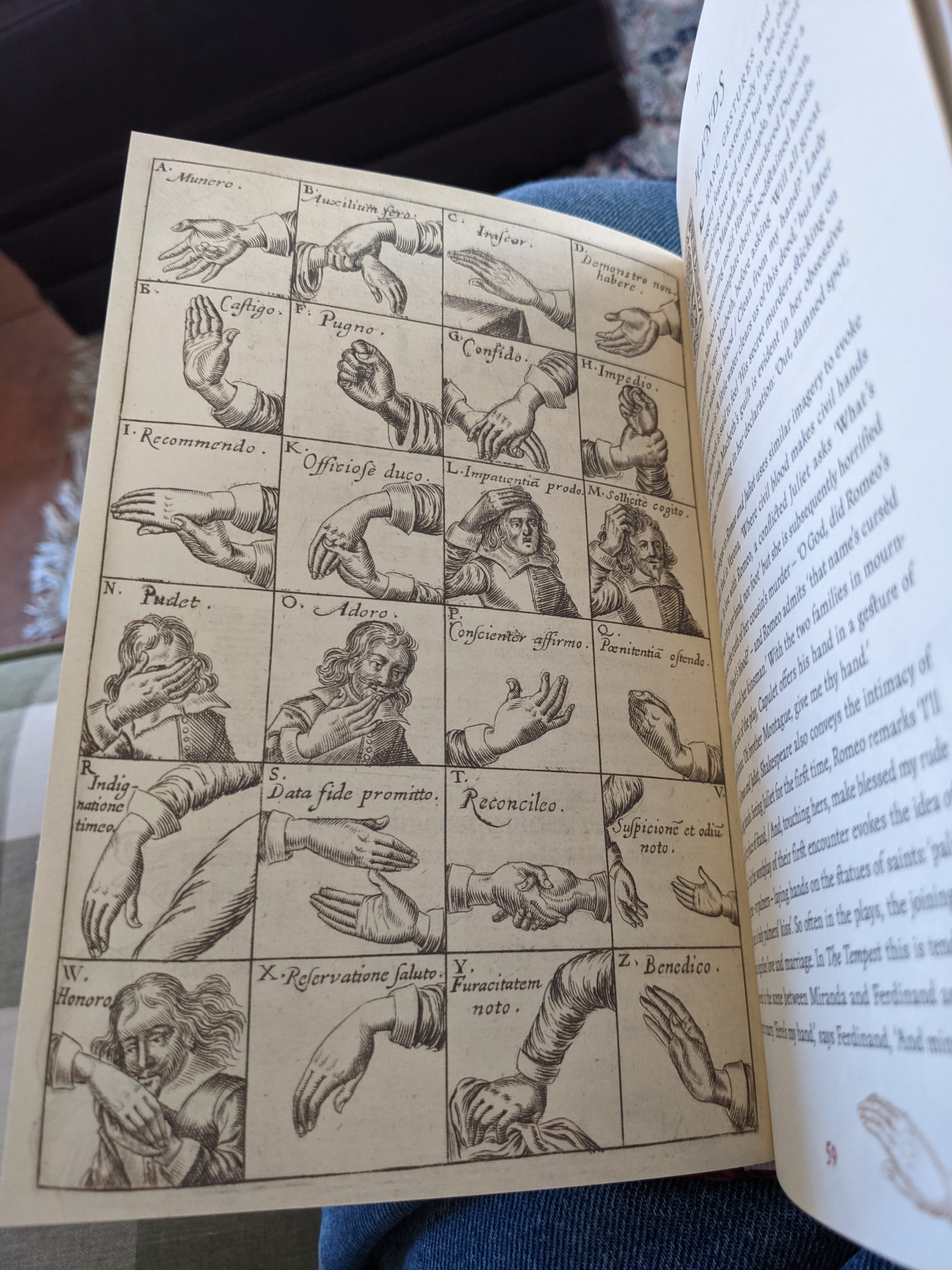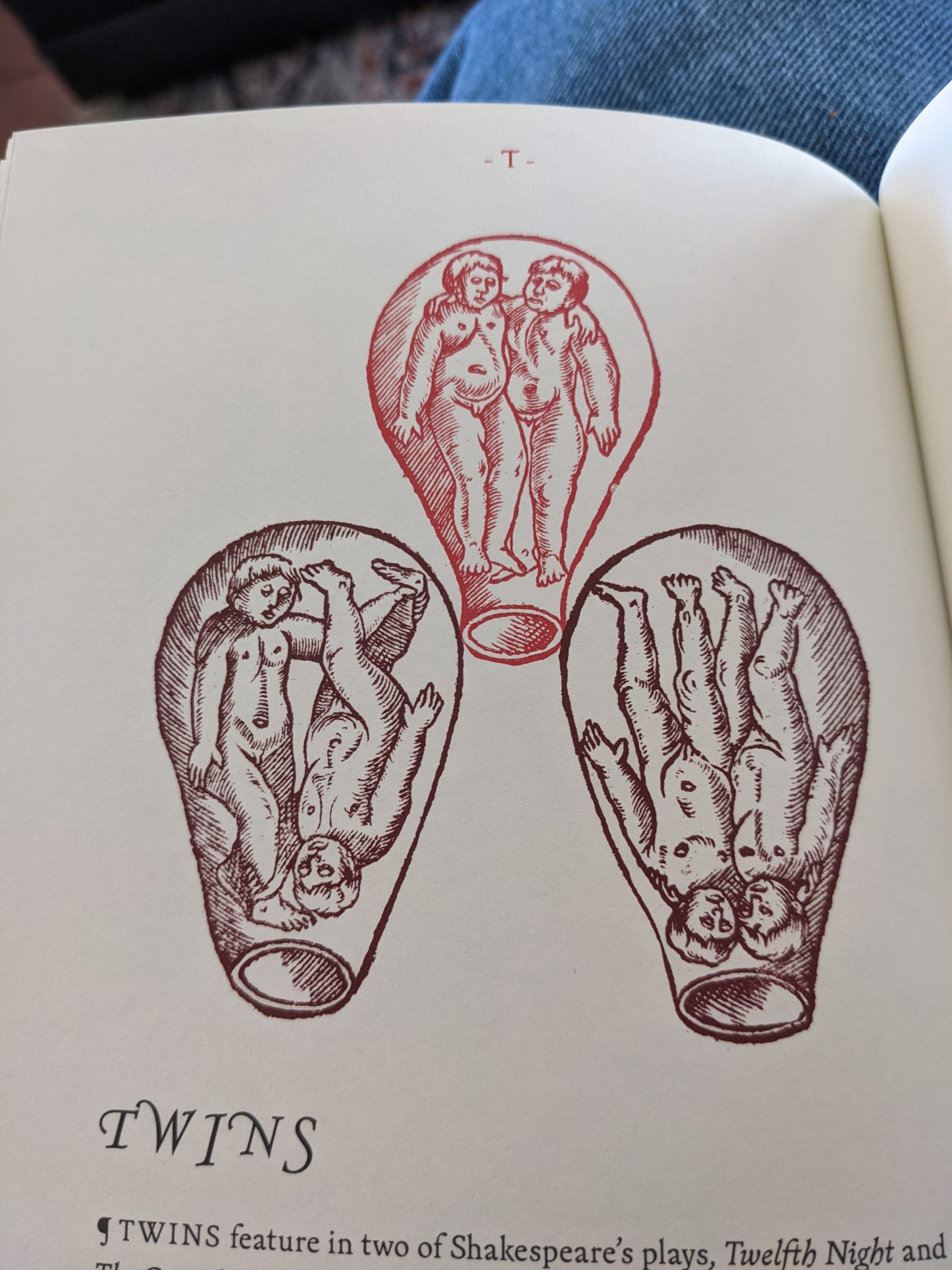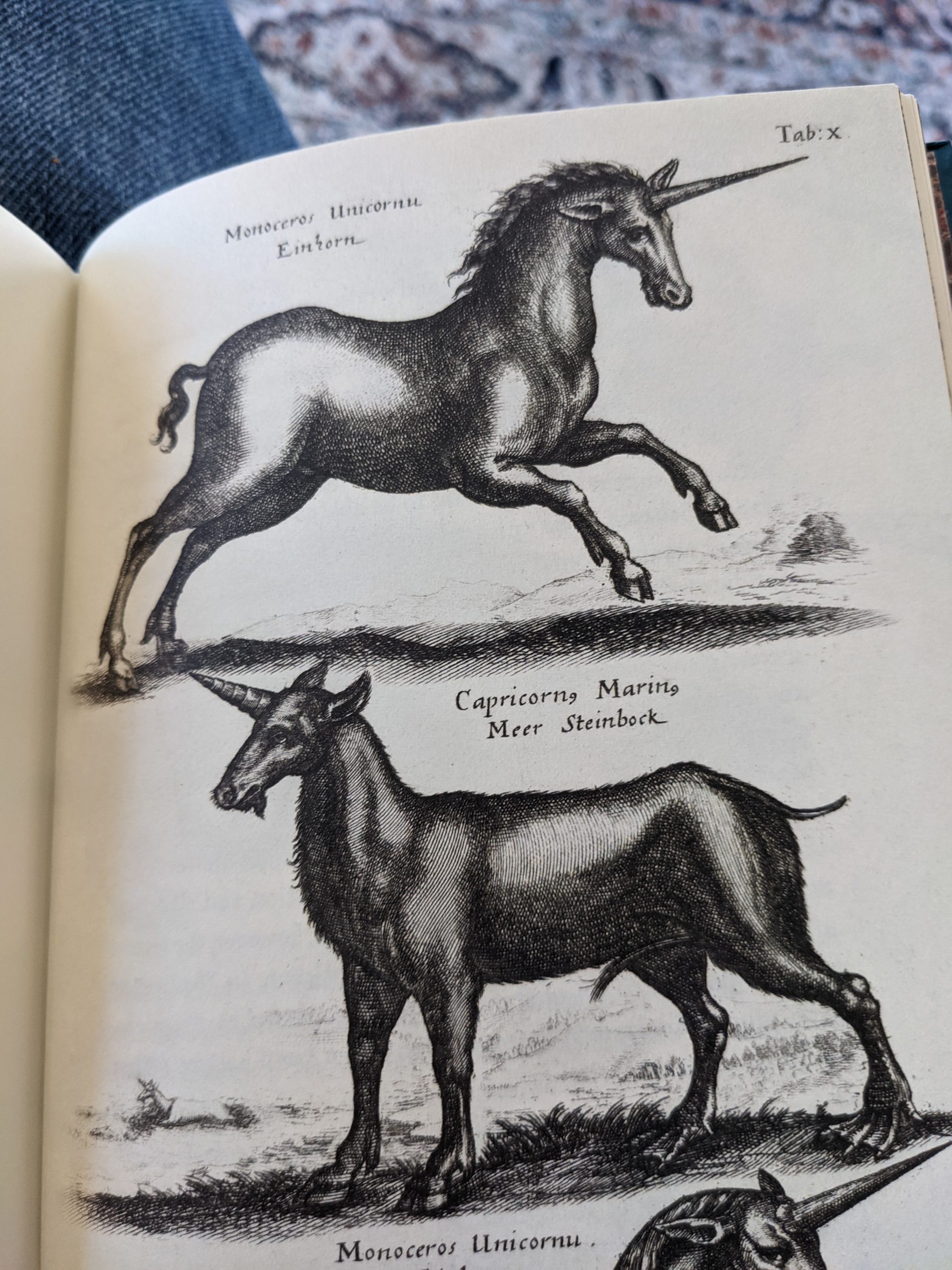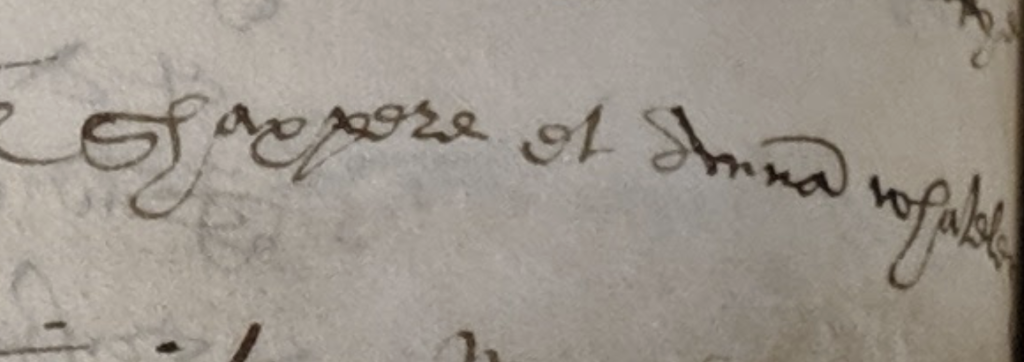Somewhere in my collection I have one of those “Shakespeare A-Z” reference books that’s something of a mini encyclopedia, attempting to reference everything of note you might want to look up from Shakespeare’s works. So when I was offered a copy of A Shakespeare Motley, described as “from apothecary to zephyr, from bee to Yorick,” I assumed it would be similar.
It’s not. This “Illustrated Assortment” isn’t trying to be a reference work. Instead it’s exactly as the title says – more of a random collection of interesting entries, with pictures. M offers mermaid and moon, mulberry and music. U gives us unicorn, urchin and … urinal? Not a word I recognized from Shakespeare, but apparently he used it four times – three in Merry Wives, once in Two Gents.
It’s the illustrations that make the book, and I’ve included some random samples below. Many of my books aren’t what I consider “sit down and read cover to cover” books, they’re “open up at random and see if something catches your curiosity.” That’s exactly what this one is. I’d love to have books like this just lying around my house that guests would feel free to pick up and flip through, maybe learn something new, maybe get a whole conversation going about interesting bits of Shakespeare.
Of course every time I leave my Shakespeare books lying around the house my wife inevitably picks them up and puts them back on the shelf, but that’s a whole different story 🙂







